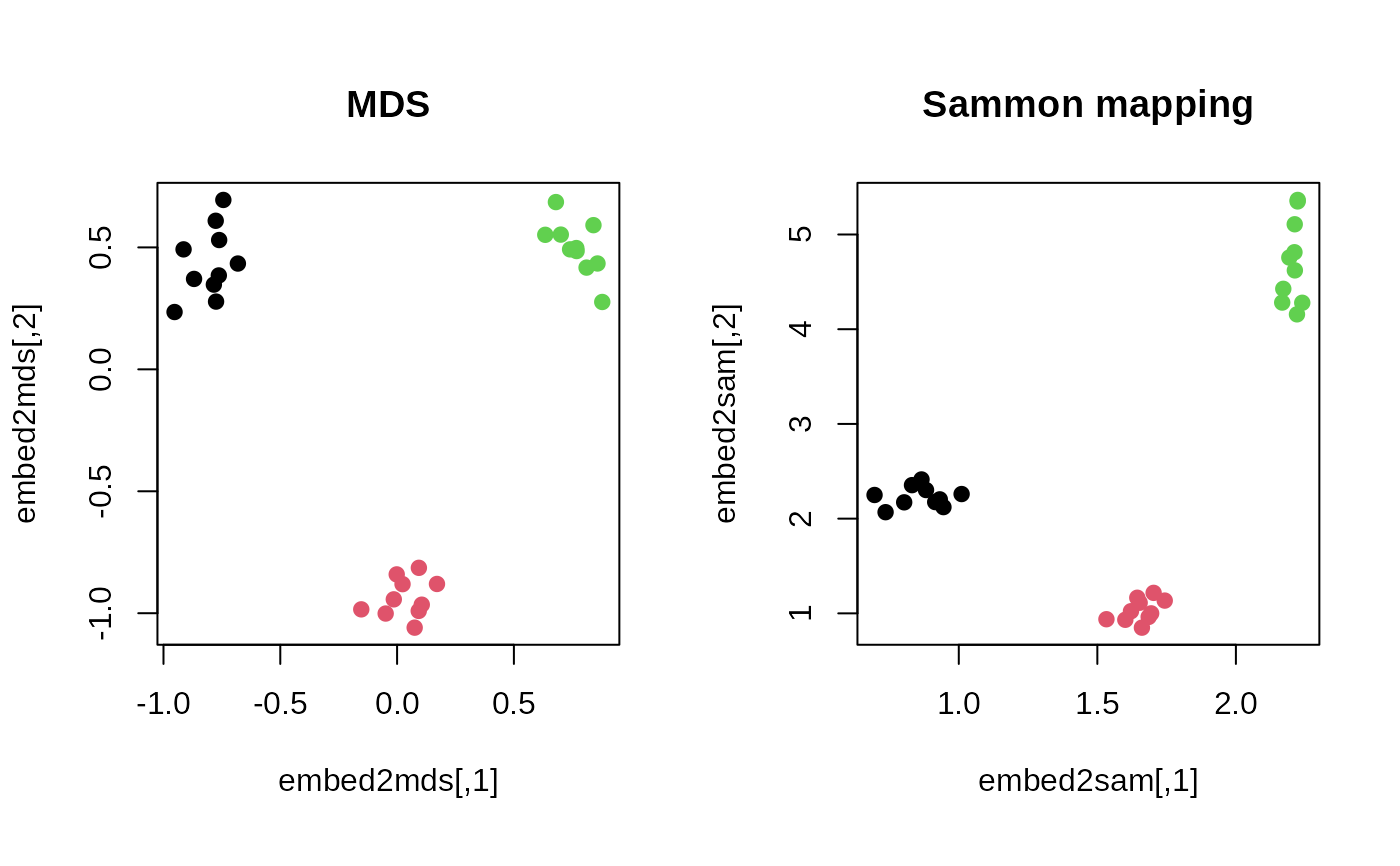Given \(N\) observations \(X_1, X_2, \ldots, X_N \in \mathcal{M}\), apply Sammon mapping, a non-linear dimensionality reduction method. Since the method depends only on the pairwise distances of the data, it can be adapted to the manifold-valued data.
Usage
riem.sammon(riemobj, ndim = 2, geometry = c("intrinsic", "extrinsic"), ...)Arguments
- riemobj
a S3
"riemdata"class for \(N\) manifold-valued data.- ndim
an integer-valued target dimension (default: 2).
- geometry
(case-insensitive) name of geometry; either geodesic (
"intrinsic") or embedded ("extrinsic") geometry.- ...
extra parameters including
- maxiter
maximum number of iterations to be run (default:50).
- eps
tolerance level for stopping criterion (default: 1e-5).
Value
a named list containing
- embed
an \((N\times ndim)\) matrix whose rows are embedded observations.
- stress
discrepancy between embedded and original distances as a measure of error.
References
Sammon JW (1969). “A Nonlinear Mapping for Data Structure Analysis.” IEEE Transactions on Computers, C-18(5), 401–409. ISSN 0018-9340.
Examples
#-------------------------------------------------------------------
# Example on Sphere : a dataset with three types
#
# 10 perturbed data points near (1,0,0) on S^2 in R^3
# 10 perturbed data points near (0,1,0) on S^2 in R^3
# 10 perturbed data points near (0,0,1) on S^2 in R^3
#-------------------------------------------------------------------
## GENERATE DATA
mydata = list()
for (i in 1:10){
tgt = c(1, stats::rnorm(2, sd=0.1))
mydata[[i]] = tgt/sqrt(sum(tgt^2))
}
for (i in 11:20){
tgt = c(rnorm(1,sd=0.1),1,rnorm(1,sd=0.1))
mydata[[i]] = tgt/sqrt(sum(tgt^2))
}
for (i in 21:30){
tgt = c(stats::rnorm(2, sd=0.1), 1)
mydata[[i]] = tgt/sqrt(sum(tgt^2))
}
myriem = wrap.sphere(mydata)
mylabs = rep(c(1,2,3), each=10)
## COMPARE SAMMON WITH MDS
embed2mds = riem.mds(myriem, ndim=2)$embed
embed2sam = riem.sammon(myriem, ndim=2)$embed
## VISUALIZE
opar = par(no.readonly=TRUE)
par(mfrow=c(1,2), pty="s")
plot(embed2mds, col=mylabs, pch=19, main="MDS")
plot(embed2sam, col=mylabs, pch=19, main="Sammon mapping")
 par(opar)
par(opar)
